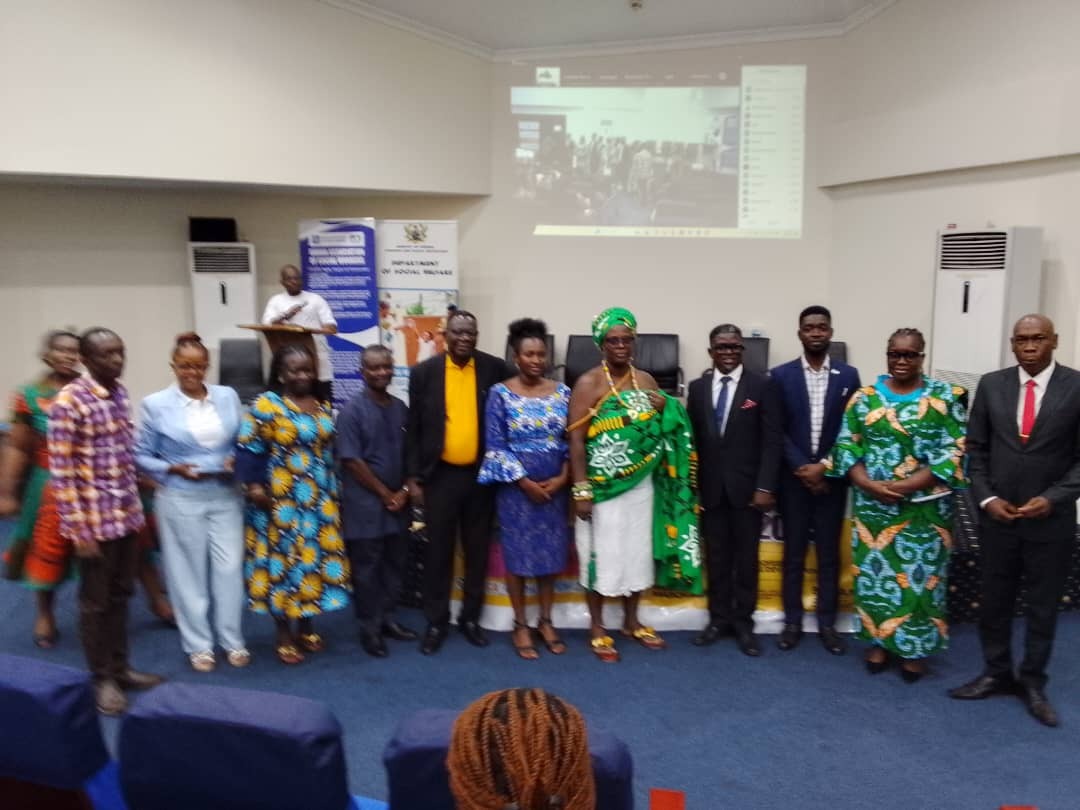As Ghana participated in the 2025 celebrations, one cannot overlook the vital role social workers play in communities, particularly in addressing their social skills.
This year’s event, themed “Strengthening Intergenerational Solidarity for Enduring Well-being,” was held on Wednesday, March 19, 2025, at the Assemblies of God Centre, Cantonments, Accra, near the Police Headquarters off JIG Road.
Social Workers’ Role in National Development
Speaking at the Assemblies of God headquarters during the celebration of Social Workers’ Day, the National Director of the Department of Social Welfare, who delivered a speech on behalf of the Minister for Gender, Children, and Social Protection, Agnes Naa Momo Lartey, emphasized the significance of social work in Ghana.
“This year’s event embraces two key themes: the global theme, ‘Strengthening Intergenerational Solidarity for Enduring Well-being,’ and the local theme, *‘Positioning the Social Work Profession as a Formidable Tool for National Development,’” she noted.
She stressed the diverse roles social workers play in Ghana, highlighting their presence in hospitals, courts (as probation officers), prisons, family casework, residential homes for children, services for the destitute, and poverty alleviation through the Livelihood Empowerment Against Poverty (LEAP) Programme, among others.
Challenges Facing Social Workers in Ghana
According to the Minister, social work as a profession in Ghana faces numerous challenges, including but not limited to:
-
Insufficient personnel: The number, capacity, and competency of social workers at the decentralized level are inadequate.
-
Lack of training guidelines: There are no clear training guidelines for social workers and paraprofessionals to ensure effective service delivery.
-
Limited resources: Insufficient funding, inadequate infrastructure, and a lack of essential equipment hinder quality service delivery.
-
Inadequate specialized training: Many social workers lack training in critical areas such as child protection, mental health, social protection, and disability support.
-
High caseloads: Many social workers handle large caseloads, making it difficult to provide individualized attention and support.
-
Emotional demands and poor working conditions: The job’s emotional demands, coupled with unfavorable working conditions, lead to burnout and low morale among social workers.
-
Community resistance: Cultural and traditional beliefs often conflict with social work principles, making it difficult for social workers to operate effectively.
-
Limited career progression: There are few opportunities for career advancement in the sector.
Government and Development Partners Interventions
The Minister highlighted various government initiatives aimed at addressing these challenges, particularly through partnerships with UNICEF and other stakeholders. Key interventions include:
-
Development of training manuals, standards, guidelines, and regulations for social welfare services.
-
Capacity-building programs for social workers to enhance service delivery.
-
Care Reform Roadmap 2024-2028 and a five-year strategic plan for street-connected children and young persons, which seek to create a more inclusive society through targeted assistance, social services, and insurance programs.
These initiatives, she noted, are part of the government’s broader commitment to reducing vulnerabilities and strengthening the capacities of social workers to serve as key drivers in poverty reduction and quality service delivery.
Calls for Action
Chairperson of the event, Mamagan Ametor Gabuadzu II, Queen Mother of the Alavanyo Traditional Area, urged participants to address the root causes of social work challenges at the grassroots level.
“Social workers help families rise above poverty and address fundamental issues to assist them,” she said.
UNICEF Representative Emmanuel Nyaku Tetteh, a Child Protection Officer, acknowledged the high unemployment rate among social work graduates and called on both national and local governments to employ more social workers.
He emphasized the importance of social workers in schools to manage student unrest and address issues before they escalate.
Similarly, President of the Ghana Association of Social Workers, Kwadwo Ofori-Dua (PhD), expressed concern over the high unemployment levels within the sector and reiterated the need for more job opportunities.
Conclusion
The celebration of World Social Work Day highlights the critical role social workers play in national development. Strengthening social work systems is essential for child welfare, social protection, disability support, and community development. Supporting and investing in social workers will contribute to the promotion of child rights and the well-being of all, both in Ghana and globally.
By Frank Owusu Obimpeh





































